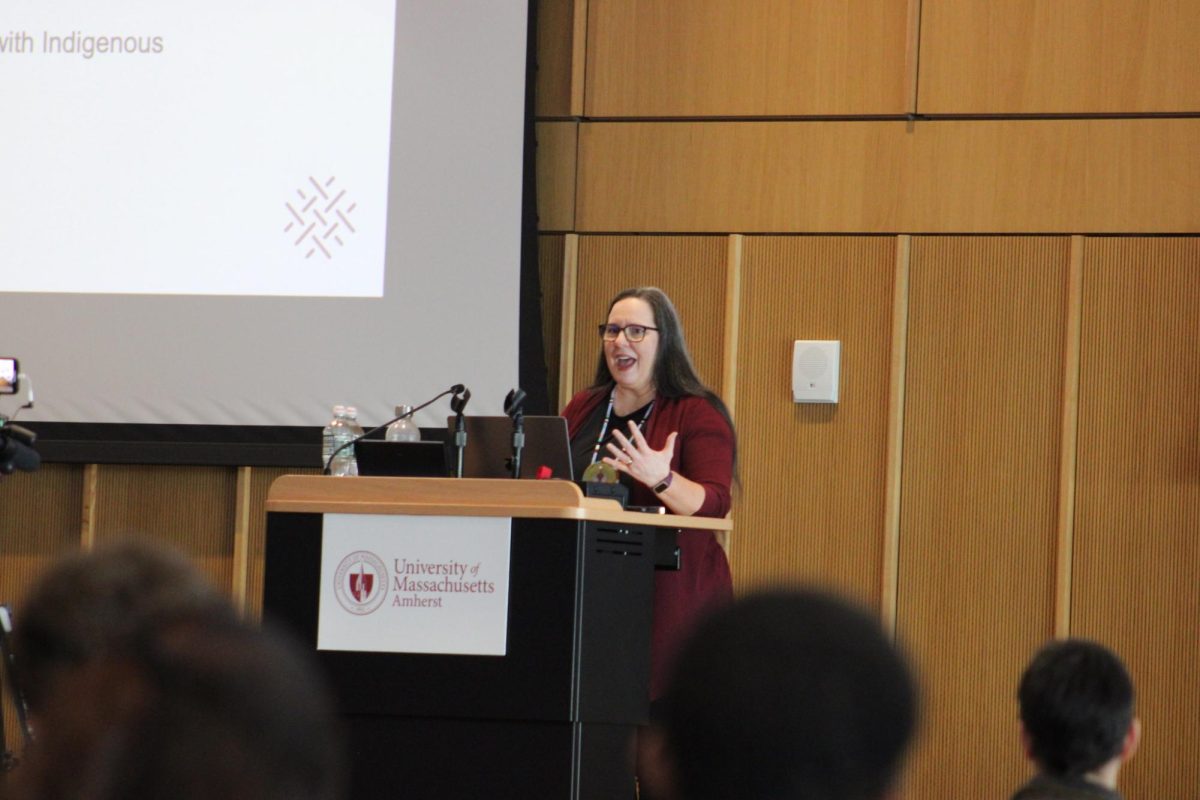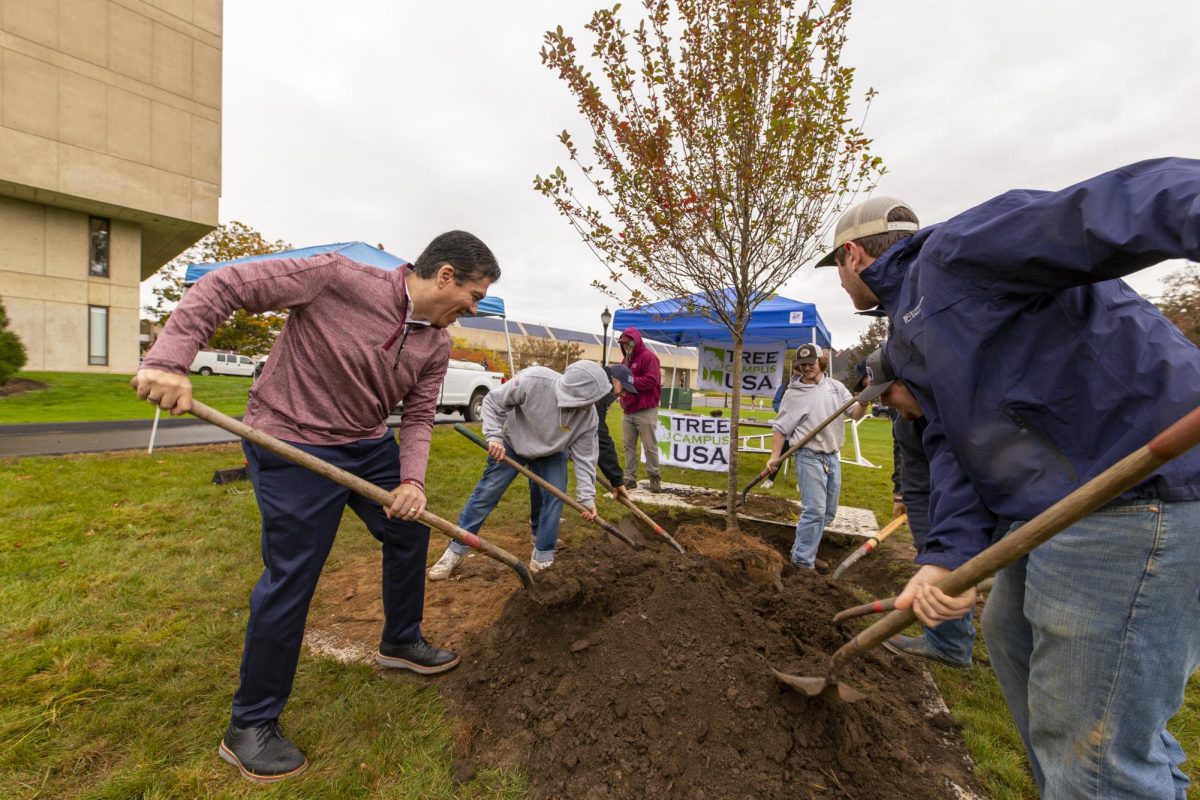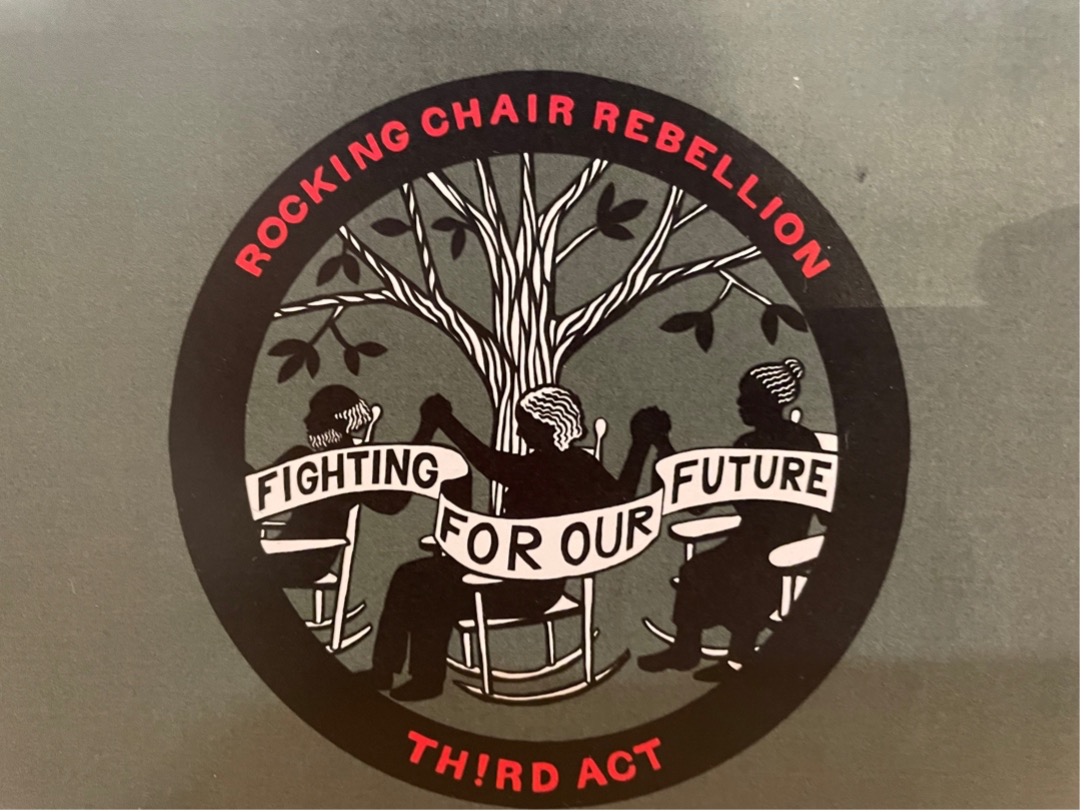As part of the 40th Earth Day and Commonwealth Honors College’s tenth birthday, a series of “Daffodil Lectures” were held in the Integrated Sciences Building on sustainability and the environment last Saturday.
The lecture series was moderated by University of Massachusetts Professor Julie Brigham-Grette, who has researched global climate change. Brigham-Grette introduced the lecture series explaining that it is important to make a distinction between weather events and longer term climate change. Brigham-Grette expressed a concern that a disconnect seems to have developed between the idea of global change and its regional consequences, saying, “We need to empower ourselves as individuals to go back to thinking on a global scale.”
Brigham-Grette displayed research slides illustrating that carbon dioxide levels in the environment are well outside normal levels, with a 64 percent increase since pre-industrial times.
Director of the Climate System Research Center and UMass distinguished professor in the department of geosciences Raymond Bradley also presented information about climate issues as part of the “Daffodil Lectures.”
“Public opinion has shifted from concern about climate change issues,” said Bradley, “but we will face real problems [in the future]. People can bury their heads in the sand, but they will soon find the sand is getting warmer too.”
Bradley, who is also an advisor to international organizations and government agencies, is an author of many books and articles on the topic of climate change. He addressed the planet’s “explosive population growth,” sharing that the human population is growing by 240,000 people per day, “with 6.3 billion people in the world, our impact on the planet is ubiquitous.”
Bradley shared United Nations estimates that the population will increase to nine billion by the end of the century. He discussed consequences of increased population growth, which include rising fossil fuel combustion and in turn even higher levels of carbon dioxide in the atmosphere. Bradley also mentioned increased ocean acidity, leaking methane and phosphates polluting lakes, rivers and waterways.
However, Bradley said, “The problems are all inextricably linked.” He went on to say that if one problem could be fixed, this might alleviate other issues. For example, he mentioned how land use changes could help prevent further species extinction as well as water pollution.
Bradley compared the pollution we are faced with today as a “wall covered in graffiti,” which has been soiled for years. His lecture focused on how many forms of industrialization have taken a significant toll on the earth’s climate. He recounted how the invention of the steam engine created the need for burning coal, then the internal combustion engine created another source of greenhouse gasses and now many developing countries have added more emissions into the atmosphere.
“It’s not just the moment we have to look at,” said Bradley, “but the cumulative effect that goes back decades and hundreds of years when it comes to taking responsibility.”
He showed the audience of a polar bear from a remote area that had toxic chemicals in its body which had migrated from more populated areas. Bradley said that we must find solutions to the sustainability problems that face us, because the effects of pollution and climate change are being felt even in the most remote areas.
Andrew Revkin an award-winning journalist who also writes the Dot Earth blog associated with the New York Times, acknowledged the population growth to come at the lecture series. “We have to ask…nine billion people plus one planet equals, what?” said Revkin.
Revkin said that on his blog he tries to look for new ways of telling stories about the “changes that are afoot.” A Senior Fellow for environmental understanding at Pace University, Revkin focused more on the social disparities that exist between some of the immensely wealthy and the poorest people on Earth.
“I see roots forward that are positive,” he said. “We have multiple challenges and opportunities especially for young people looking to shape their careers. Climate change is not the only story of our century.”
He acknowledged that wealth and technology can help developing nations tackle their sustainability issues. He also spoke of the younger people of the world, referring to them as “Generation E” for “energy.”
“It is important to remember we’re doing so many things to the Earth,” he said. “It’s like a whirring blender for biology. It is Generation E that gives me the most hope.”
Bron Taylor concluded the lecture series with a talk that mentioned how many species are endangered.
“The problem is the Earth animal, and the solution is our capacity to care,” said Taylor. A professor of religion and nature at the University of Florida, Taylor has written books explaining the idea of “Dark Green Religion.”
One of the ideas discussed in his books is that protecting the environment can be seen as a religious duty.
“We are prey with no separateness from nature,” he said, “We are part of the food chain.”
Taylor discussed the role of “dark green religion” in helping people feel connected to nature and feel motivated to protect it.
“I think we’re at the early stage of a large scale cultural reformation. What follows is a sense of reciprocal moral concern for all species,” he said.
“We need to start thinking about a future for our planet, re-thinking technology, to whom we belong, and what our place is in the universe,” he added.
By thinking in this way, he believes that people will be more likely to learn their “manners on this planet.”
He acknowledged decreasing biodiversity saying, “species’ extinctions come with very large costs, many of which are unknown.”
Kat Manser can be reached at [email protected].






